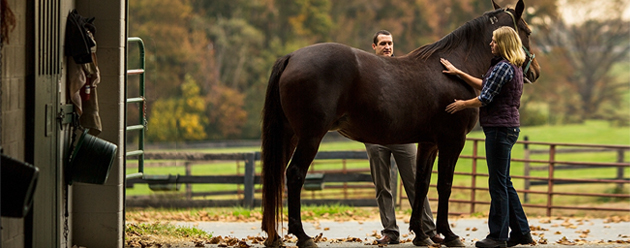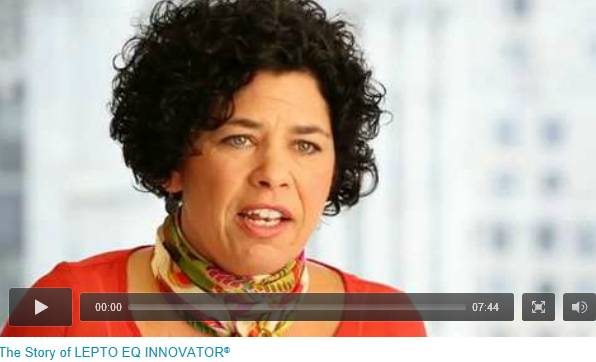
A Closer Look At The Horses We Help Care For
August 18, 2016
The fifth article in our series about the animals we care for focuses on horses and equine health. At Zoetis, we work with veterinarians, horse owners and other equine professionals to help horses live longer, healthier lives.
The fifth article in our series about the animals we care for focuses on horses and equine health. At Zoetis, we work with veterinarians, horse owners and other equine professionals to help horses live longer, healthier lives.
Common health challenges
Horses are prone to a number of health issues. Like other animals that spend a lot of time outdoors, horses are exposed to allergens, insects, and parasites. Allergens can cause itching of the skin or respiratory problems, while insects and external parasites can cause a number of diseases with a range of symptoms. Other common ailments include digestive issues like colic, leg issues, including lameness and laminitis, especially in work, race and sport horses. Horses are also susceptible to internal parasites and infectious diseases like ‘flu, tetanus and rhinopneumonitis. Zoetis provides a wide range of products and solutions, including core and risk-based equine vaccines, dewormers and sedative analgesics to help protect against disease and keep horses healthy.
Bringing new solutions to market
New infectious diseases and new strains of ever-present diseases are constantly emerging. These diseases can affect animals and people alike, and horses are no exception. Zoetis is at the forefront of the battle to help combat bacteria and viruses threatening animal health.
Leptospirosis
Did you know many otherwise healthy horses in the U.S. have been exposed to an infectious bacterial disease that can cause blindness, abortion, and kidney failure? Researchers say that this disease, leptospirosis, may be even more prevalent than previously known. This is because the clinical signs of the infection such as fever, depression, anorexia, and pain are general symptoms that don't specifically point to leptospirosis. Horses can become infected with leptospires (the disease-causing bacteria) through contact with urine from wildlife, cattle and dogs. Standing water and rainfall can also pose an increased risk.
Responding to an industry need, Zoetis recently launched the first and only vaccine in the U.S. to help prevent against leptospirosis, the devastating bacterial infection caused by a specific type of leptospire (Leptospira interrogans serovar Pomona), known as L. pomona in horses.
“Leptospirosis is a disease that can cause devastating health risks to horses and can require costly treatment. In response to the equine industry’s requests for a vaccine, Zoetis developed LEPTO EQ INNOVATOR® to better arm veterinarians with the tools they need to help ensure the health and well-being of their horses,” said Jacquelin Boggs, DVM, MS, ACVIM, senior veterinarian, Equine Technical Services at Zoetis. “Until this vaccine, preventive options against leptospirosis caused by L. Pomona have been limited in horses.”
Hendra virus
On the other side of the world, Zoetis also responded to a serious disease that affects horses and the population that surround them, becoming the first and only company to receive approval for a vaccine, Equivac® HeV, to help protect horses from Hendra virus. Hendra virus causes a serious zoonotic disease first identified in Queensland, Australia that can threaten the lives of horses and people. Being a Biosafety Level 4 agent, Hendra virus is considered one of the most deadly viruses on earth. Ebola virus is the most commonly known Biosafety Level 4 agent.
The virus, which occurs naturally in the flying fox (or fruit bat) population of the region, can be transmitted from the bat to horse, which then can transmit it to other horses and humans. People can become infected through close contact with infected or dead horses.
Since 1994, the virus has killed 57% of humans that have become infected (4 out of 7)1, while a Hendra virus diagnosis is almost a guaranteed death sentence for a horse, either as a result of the virus directly or being euthanized due to government regulation that aims to stop Hendra virus spreading via infected horses.
"The vaccine helps protect horses from the disease and, more importantly, can break the cycle of transmission that can put humans at risk. By vaccinating horses, owners are also helping protect themselves, their families and anyone else who comes into contact with the horses," said Stephanie Armstrong, a veterinarian and Companion Animal Business Unit Director in Australia.
The vaccine is the result of a public-private partnership between Zoetis, CSIRO's Australian Animal Health Laboratory and US organizations including the Uniformed Service University for the Health Sciences (USU) and the Henry M. Jackson Foundation for the Advancement of Military Medicine.
Lance Williams, General Manager Australia and New Zealand, said, "Everyone at Zoetis should be proud of the work that led to Equivac HeV being made available. This is the first vaccine in the world to help protect against a ‘Biosafety Level 4 agent’. It is the result of international collaboration, and is vital to the work of equine veterinarians in Australia.”
Learn more
To learn more about leptospirosis, watch our video on the Lepto EQ Innovator story.
